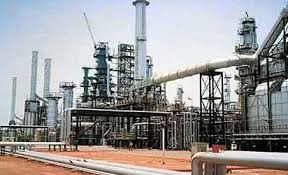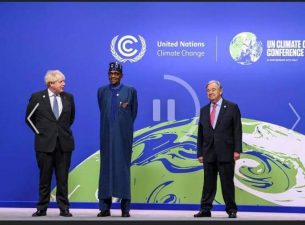By BASHIR ADEFAKA
Commissioning of the 5,000 barrels per day (bpd) Waltersmith Modular Refinery in Ibigwe, Ohaji Egbema Local Government Area of Imo State, and commencement of its expansion to a 50,000bpd capacity should be seen as the fruit of careful planning and hard work by the Muhammadu Buhari Administration, it has been said.
According to the Buhari Media Organisation (BMO), this is a most welcome development, especially since it resulted from the 2018 licensing of modular refineries, where it said such attempts by previous Peoples Democratic Party (PDP) governments had failed woefully.
BMO also expressed great delight in the commencement of expansion of the capacity of the refinery to 50,000 bpd aimed at repositioning the country as a net exporter of petroleum products to the worldwide market.
In a statement sent to The DEFENDER, signed by its Chairman Niyi Akinsiju and Secretary Cassidy Madueke, BMO said President Muhammadu Buhari’s liberalisation of the petroleum sector by granting licences to individuals to establish modular refineries is yielding the intended positive results.
Expressing optimism that the new modular refinery will solve the seemingly unending problem of distributing refined petroleum products in the country, the group added that “this laudable initiative will help eliminate problems associated with local refining, such as corruption, environmental pollution and degradation.
“The new modular refinery has broken a 15-year jinx where licencing amounted to nothing. Recall that in 2005 the then President, Olusegun Obasanjo issued the first set of modular refinery licenses; but it yielded no positive results because there was no conducive atmosphere to make it bear fruit.
“The difference between earlier licencing when there were no results, and the President Buhari Administration’s successful licensing, is appropriate domestic pricing of refined petroleum products as previous licensees failed to secure foreign partners and funding because of lowly priced products.
“Then, it was far more lucrative to import petrol than to attempt domestic refining. But today, the narrative has changed due to this administration’s brilliant and focussed policies.
“It is now more economically viable to attract foreign direct investment in products refining in Nigeria than importing”.
Another praise-worthy effect of this laudable initiative is that it will be easier to completely deregulate the downstream petroleum such that the prices of refined petroleum products will not be subject to the vagaries of the international price of crude, shipping and foreign exchange rates”.
BMO also noted that the establishment of the Waltersmith modular refinery is a Public-Private -Partnership (PPP) arrangement which seems to indicate the government’s new business model for refineries.
“This administration has shown its determination to solve peculiar geopolitical challenges and leave equitable landmarks across the country, and we are sure that the Waltersmith modular refinery will build up investors’ confidence and subsequently create assurance of possibilities in the investors’ space”.
The group expressed hope that more of such refineries will come on stream in the nearest future
and urged other interest groups, like the Niger Delta Governors, to grab this opportunity and embark on joint modular oil refineries to increase their earnings from the sector.




